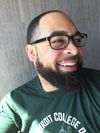Why you Should Never Sleep on a Good History

During residency, one of my colleagues had the pleasure of taking care of a male in his 40s with refractory tachycardia. An EKG was done which confirmed sinus tachycardia. Comprehensive metabolic panel along with magnesium and phosphorus were within normal limits. Complete blood count was negative for elevated white blood cell count or anemia. His thyroid function panel was also normal along with his urine drug screen. Pheochromocytoma workup was also unimpressive. Vagal maneuvers were unsuccessful.

He was referred to cardiology after he failed beta blocker therapy. Cardiology ordered a trans-thoracic echocardiography which was essentially normal. He had a monitor placed which only confirmed sinus tachycardia. After all of this testing, to know avail he presented for follow up in the internal medicine clinic and was seen by another colleague of mine.
Seeing all that was ordered, my co-intern was amazed that there was still no answer. During the follow up visit he decided to start at square one, the history:

👨🏽⚕️"Other than the tachycardia, do you have any other history?"
💁🏼♂️ "No sir"
👨🏽⚕️"How about surgical history?"
💁🏼♂️ "No surgeries"
👨🏽⚕️"Do you have any family history related to fast heart rates or sudden death?"
💁🏼♂️ "No Sir"
👨🏽⚕️"Do you use any drugs?"
💁🏼♂️ "I do not use any drugs sir"
👨🏽⚕️"How about caffeine such as coffee or pop"
💁🏼♂️ "Oh, I drink coffee everyday"
👨🏽⚕️"How much?"
💁🏼♂️ "About three-a-day"
👨🏽⚕️"Three cups of coffee may not seem like a lot, but it may have something to do with why your heart rate is so high"
💁🏼♂️ "Oh, sir I was saying three pots of coffee per day!"
🤦🏽♂️

Suddenly the light bulb went off in my co-residents head. He instructed the patient to refrain from drinking that much coffee and fortunately, the patients tachycardia resolved.
History taking is one of the first clinical skills bestowed onto a medical trainee, and for good reason. Although medicine has seen such great advances in technology, medical history is still a force to reckon. One study made the claim that history could determine 83% of the diagnoses in outpatient setting. This does not mean that one should abandon confirmatory testing, and diagnostics. Instead it highlights the importance of asking the right questions.
